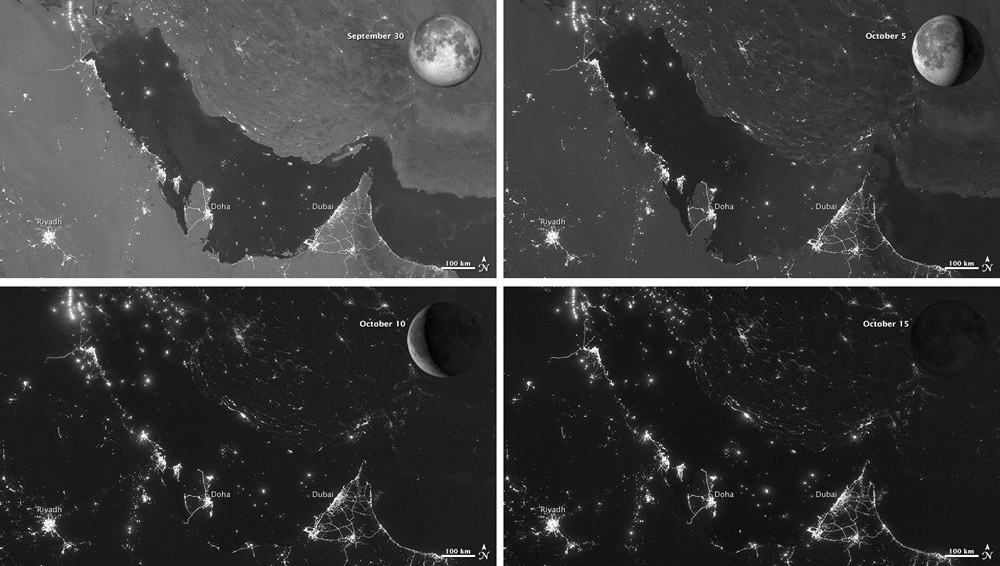Difference between revisions of "January 9, 2013"
| Line 3: | Line 3: | ||
<!-- ws:start:WikiTextHeadingRule:0:<h1> --> | <!-- ws:start:WikiTextHeadingRule:0:<h1> --> | ||
<!-- ws:start:WikiTextLocalImageRule:6:<img src="/file/view/LPOD-Jan9-13a.jpg/396825372/LPOD-Jan9-13a.jpg" alt="" title="" /> -->[[File:LPOD-Jan9-13a.jpg|LPOD-Jan9-13a.jpg]]<!-- ws:end:WikiTextLocalImageRule:6 --><br /> | <!-- ws:start:WikiTextLocalImageRule:6:<img src="/file/view/LPOD-Jan9-13a.jpg/396825372/LPOD-Jan9-13a.jpg" alt="" title="" /> -->[[File:LPOD-Jan9-13a.jpg|LPOD-Jan9-13a.jpg]]<!-- ws:end:WikiTextLocalImageRule:6 --><br /> | ||
| − | <em>Soumi satellite images from [http://earthobservatory.nasa.gov/IOTD/view.php?id=79834 | + | <em>Soumi satellite images from [http://earthobservatory.nasa.gov/IOTD/view.php?id=79834 NASA Earth Observatory]</em><br /> |
<br /> | <br /> | ||
All of us who observe the Moon know how much the ambient brightness varies; sometimes you can read the eyepiece focal length numbers and other times you can't even find the eyepieces. This wonderful graphic dramatically illustrates the variation from an unusual perspective - Earth orbit. When the Moon is full (top left), it is about 10,000 times brighter than at new Moon (bottom right). I speculate that in the old days, military commanders would make night time attacks near full Moon so they could see where they were going, but now night vision sensors allow night attacks during any phase. The Earth Observatory points out that in the pre-electricity era travel was hazardous if not stupid on dark nights, so one group of thinkers in the 1700s in England held their monthly meetings at full Moon so they could see to find their way home. They called themselves the Lunar Society. <br /> | All of us who observe the Moon know how much the ambient brightness varies; sometimes you can read the eyepiece focal length numbers and other times you can't even find the eyepieces. This wonderful graphic dramatically illustrates the variation from an unusual perspective - Earth orbit. When the Moon is full (top left), it is about 10,000 times brighter than at new Moon (bottom right). I speculate that in the old days, military commanders would make night time attacks near full Moon so they could see where they were going, but now night vision sensors allow night attacks during any phase. The Earth Observatory points out that in the pre-electricity era travel was hazardous if not stupid on dark nights, so one group of thinkers in the 1700s in England held their monthly meetings at full Moon so they could see to find their way home. They called themselves the Lunar Society. <br /> | ||
<br /> | <br /> | ||
| − | <em>[mailto:tychocrater@yahoo.com | + | <em>[mailto:tychocrater@yahoo.com Chuck Wood]</em><br /> |
<br /> | <br /> | ||
<hr /> | <hr /> | ||
Revision as of 17:59, 11 January 2015
Moonlight And Moondark

Soumi satellite images from NASA Earth Observatory
All of us who observe the Moon know how much the ambient brightness varies; sometimes you can read the eyepiece focal length numbers and other times you can't even find the eyepieces. This wonderful graphic dramatically illustrates the variation from an unusual perspective - Earth orbit. When the Moon is full (top left), it is about 10,000 times brighter than at new Moon (bottom right). I speculate that in the old days, military commanders would make night time attacks near full Moon so they could see where they were going, but now night vision sensors allow night attacks during any phase. The Earth Observatory points out that in the pre-electricity era travel was hazardous if not stupid on dark nights, so one group of thinkers in the 1700s in England held their monthly meetings at full Moon so they could see to find their way home. They called themselves the Lunar Society.
Chuck Wood



